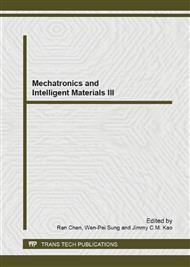p.814
p.818
p.822
p.826
p.830
p.836
p.840
p.845
p.849
Integrative Control of Regenerative Braking System and Anti-Lock Braking System
Abstract:
For Electric Vehicle (EV), energy saving and endurance mileage prolonging are very important. Regenerative Braking System (RBS) is a key point in this respect. At the same time, braking safety is a rigid demand of EV. In this respect, the Anti-lock Braking System (ABS) has an excellent performance. As a result, the integration of RBS and ABS plays an important role in the development of the EV control. In this paper, a dynamic adaptive threshold theory decides when RBS should exist will be studied, and when the states of vehicle reach the adaptive threshold, a sliding mode control method will be used to meet the total braking force and the system will reduce the motor braking force. Before slip rate of vehicle reaches the ABS threshold, the regenerative braking force will be reduced to 0. The braking safety will be improved in this way.
Info:
Periodical:
Pages:
830-835
Citation:
Online since:
June 2013
Authors:
Price:
Сopyright:
© 2013 Trans Tech Publications Ltd. All Rights Reserved
Share:
Citation:


